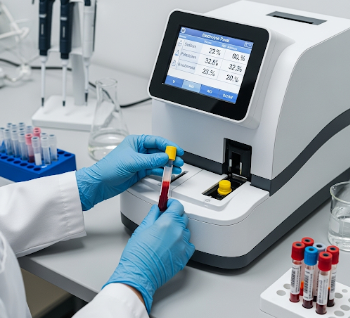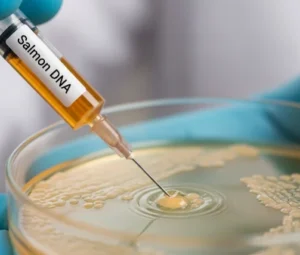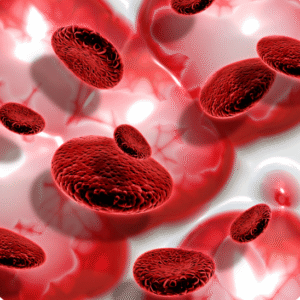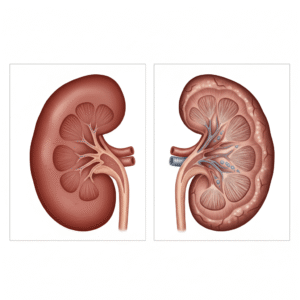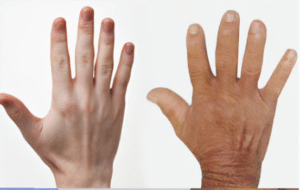What is an Electrolyte Test?
An electrolyte test is a laboratory examination that measures the levels of essential electrolytes in the blood, including sodium (Na+), potassium (K+), chloride (Cl–), calcium (Ca2+), magnesium (Mg2+), and bicarbonate (HCO3–).
Electrolytes are crucial for body functions, such as:
✔️ Maintaining fluid balance
✔️ Regulating nerve and muscle function
✔️ Supporting heart rhythm and cardiac function
✔️ Balancing acid-base levels in the blood
Imbalances in electrolytes can lead to serious health problems, including dehydration, arrhythmias, seizures, or kidney dysfunction.
In Korea, electrolyte testing is widely available in hospitals, diagnostic laboratories, and health screening centers. Korean laboratories use advanced automated analyzers and highly trained technicians, ensuring fast, accurate, and reliable results.
➡️ Measures sodium, potassium, chloride, calcium, magnesium, and bicarbonate levels
➡️ Detects imbalances that may affect heart, kidney, and nerve function
➡️ Supports diagnosis, treatment, and monitoring of medical conditions
Why It’s Done
Electrolyte tests are performed to monitor health, diagnose disorders, and guide treatment.
✔️ Assess dehydration or overhydration – Common in infections, diarrhea, or excessive fluid intake
✔️ Evaluate kidney function – Kidneys regulate electrolyte balance
✔️ Monitor heart and muscle function – Electrolytes affect cardiac rhythm and muscle contraction
✔️ Manage chronic illnesses – Heart disease, kidney disease, diabetes, or endocrine disorders
✔️ Guide treatment – Especially for patients on IV fluids, diuretics, or medications affecting electrolytes
Clinical Benefits:
➡️ Early detection of electrolyte imbalances → Prevents complications like arrhythmias or seizures
➡️ Monitors effectiveness of treatments → Adjusts medications or IV fluids as needed
➡️ Supports accurate diagnosis → Identifies underlying causes of fatigue, confusion, or swelling
In Korea, electrolyte testing is often included in routine blood panels, health check-ups, and hospital admissions, particularly for patients with chronic or acute illnesses.
Alternatives
While electrolyte tests are standard for evaluating mineral and fluid balance, other tests can provide complementary information:
⭐ Renal Function Tests (RFTs) – Measures kidney function and creatinine levels
⭐ Blood Gas Analysis – Evaluates acid-base balance along with electrolytes
⭐ Urine Electrolyte Analysis – Assesses electrolyte excretion and kidney performance
⭐ ECG – Detects cardiac effects of electrolyte imbalances such as hyperkalemia or hypokalemia
👉 Electrolyte testing remains the most direct and reliable method to assess body electrolyte status.
Preparation
Preparation for an electrolyte test is simple but important:
🔹 Fasting may be required – Typically 8–12 hours for accurate sodium, potassium, or calcium readings
🔹 Avoid strenuous exercise – Can alter potassium levels
🔹 Inform the laboratory – About medications, supplements, or recent IV fluids
🔹 Stay hydrated – Unless instructed otherwise
⭐ No special preparation for routine checks or hospital monitoring
⭐ Medications affecting electrolytes (diuretics, ACE inhibitors) may need adjustment
How It’s Done
The electrolyte test procedure is quick and minimally invasive:
- Sample Collection
✔️ Blood drawn from a vein in the arm using a sterile needle
✔️ Collected in a vacutainer or test tube - Laboratory Analysis
🔹 Automated analyzers measure levels of sodium, potassium, chloride, calcium, magnesium, and bicarbonate
🔹 Results usually available within a few hours to 1 day - Interpretation
➡️ Physician reviews results to identify imbalances
➡️ Determines if additional tests or treatment adjustments are necessary
Highlights:
✔️ Non-invasive with minimal discomfort
✔️ Fast and accurate results
✔️ Can be repeated as needed for monitoring
Recovery
Recovery from an electrolyte test is immediate, as it involves only a blood draw:
✔️ Resume normal activities immediately
✔️ Minor bruising or soreness – At the puncture site
✔️ Hydrate after test – Especially if fasting was involved
✔️ Follow-up testing – May be scheduled to monitor treatment or disease progression
⭐ Patients on IV therapy or medications affecting electrolytes may require regular monitoring
Complications
Electrolyte tests are very safe, with minimal risk:
⚠️ Minor bleeding or bruising – From needle insertion
⚠️ Dizziness or fainting – Rare, especially in patients sensitive to blood draws
⚠️ Inaccurate results – If fasting or hydration instructions are not followed
⚠️ Allergic reaction – Rarely, to antiseptic or collection tube materials
➡️ In Korea, trained phlebotomists and modern laboratory procedures minimize these risks.
Treatment Options in Korea
If an electrolyte imbalance is detected, Korea offers comprehensive medical management:
🏥 Medication Therapy – Potassium supplements, diuretics, or calcium/magnesium adjustments
🏥 IV Therapy – Corrects severe dehydration or electrolyte deficiencies
🏥 Dietary Interventions – Tailored nutrition plans to balance electrolytes
🏥 Monitoring Programs – Chronic disease patients monitored for recurring imbalances
🏥 Specialist Consultation – Nephrologists, cardiologists, or endocrinologists for complex cases
Why Korea is a Preferred Destination:
✔️ Advanced diagnostic laboratories – Automated analyzers for precise measurement
✔️ Expert physicians – Experienced in managing electrolyte and metabolic disorders
✔️ Affordable and accessible testing – Quick results with follow-up care
✔️ Medical tourism support – Translation, travel coordination, and hospital assistance
Approximate Costs in Korea:
🔹 Electrolyte Panel (basic) → $20 – $50
🔹 Comprehensive Electrolyte & Kidney Function Test → $50 – $100
🔹 Hospital Monitoring for Critical Patients → $100 – $200 per day including labs
Conclusion
An electrolyte test is an essential tool for evaluating mineral balance, fluid status, and organ function.
It helps:
✔️ Detect electrolyte imbalances early
✔️ Monitor treatment for chronic diseases or hospitalization
✔️ Prevent life-threatening complications like arrhythmias, seizures, or dehydration
✔️ Guide medication, IV therapy, and dietary interventions
In Korea, patients benefit from:
✔️ Advanced laboratory technology
✔️ Experienced physicians and specialists
✔️ Rapid and accurate results
✔️ Comprehensive follow-up care and treatment
👉 Electrolyte testing is safe, fast, and crucial for maintaining optimal health, especially for patients with chronic illness or acute medical conditions.
Key Message: Accurate electrolyte monitoring enables early intervention, effective treatment, and prevention of serious complications, ensuring better health outcomes.

